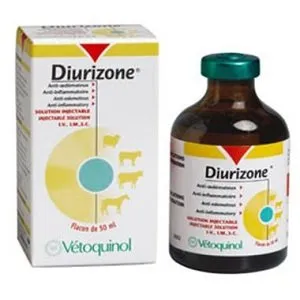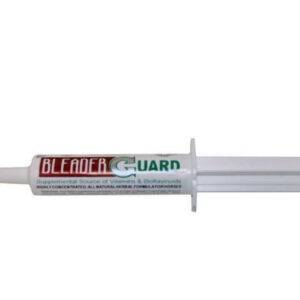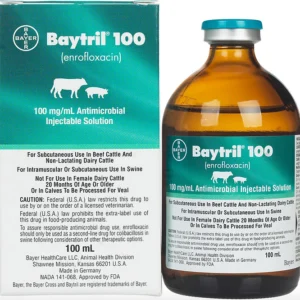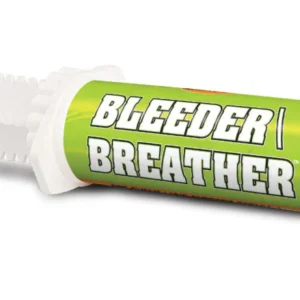Diurizone
1. What is Diurizone?
Diurizone is a combination medication containing a diuretic and a corticosteroid, designed to help reduce fluid retention (edema) and manage inflammation. It is often used to treat animals suffering from conditions that involve excessive fluid buildup, inflammation, or allergic reactions. Diurizone Injectable
Diurizone and Diurizone Injectable are veterinary medications commonly used to treat conditions related to fluid retention, inflammation, and allergic reactions in animals, particularly livestock such as horses and cattle. The main function of these medications is to reduce excess fluid (edema) and inflammation in the body. Below is a detailed account of both Diurizone and Diurizone Injectable:
The two main active ingredients are:
Furosemide (Diuretic): Helps remove excess fluid from the body by increasing urine production, reducing fluid buildup in tissues and organs.
Dexamethasone (Corticosteroid): Reduces inflammation and suppresses the immune response in conditions like allergies or autoimmune diseases.
2. What is Diurizone Injectable?
Diurizone Injectable is the injectable form of it, containing the same combination of a diuretic (furosemide) and a corticosteroid (dexamethasone). The injectable form allows for rapid administration and is especially useful in acute or emergency situations where fluid retention or severe inflammation needs to be addressed quickly.
3. Uses of Diurizone and Diurizone Injectable:
Edema (Fluid Retention): it is used to treat edema caused by heart failure, liver disease, or kidney dysfunction. The diuretic (furosemide) helps eliminate excess fluid in tissues.
Inflammation: The corticosteroid (dexamethasone) helps reduce inflammation in various conditions, including joint inflammation, respiratory issues, or allergic reactions.
Respiratory Issues: It can be used to manage pulmonary edema or fluid accumulation in the lungs, common in heart failure or severe allergic reactions.
Allergic Reactions: The dexamethasone in Diurizone is effective in treating allergic responses, such as hives or anaphylaxis.
Joint Conditions: Diurizone may be administered to reduce inflammation and swelling in joints, particularly in horses suffering from arthritis or other joint issues.
Prevention of Laminitis in Horses: In some cases, corticosteroids like dexamethasone may be used to prevent or manage laminitis, a painful inflammation of the hoof in horses.
Administration and Dosage:
Diurizone Injectable: The injectable form is typically administered via intramuscular (IM) or intravenous (IV) injection, depending on the severity of the condition. The dosage varies depending on the species, size of the animal, and the specific condition being treated.
Diurizone Oral Form: When given orally, it is typically mixed with feed or water. The oral route is generally used for less severe conditions or for ongoing maintenance treatment.
Veterinary Supervision: The exact dosage and administration schedule should always be determined by a veterinarian, as it depends on the specific needs of the animal, the severity of the condition, and the animal’s overall health.
5. Benefits:
Rapid Fluid Reduction: The furosemide component of Diurizone rapidly reduces fluid buildup, which can help improve breathing, reduce swelling, and relieve pressure in vital organs.
Powerful Anti-Inflammatory Action: The dexamethasone component helps control inflammation, pain, and allergic reactions, making it useful in both acute and chronic conditions.
Multi-System Treatment: Diurizone addresses both fluid retention and inflammation, making it versatile for treating a variety of conditions related to the cardiovascular, respiratory, and musculoskeletal systems.
Side Effects and Precautions:
Dehydration: Furosemide, as a potent diuretic, can cause excessive loss of water and electrolytes, leading to dehydration if not properly monitored.
Electrolyte Imbalance: Furosemide can cause an imbalance in electrolytes, particularly potassium, which can affect heart function and other physiological processes.
Immunosuppression: Dexamethasone is a corticosteroid that suppresses the immune system, which can leave animals more susceptible to infections, especially with long-term use.
Gastrointestinal Issues: Dexamethasone may cause gastrointestinal upset, including ulcers, especially when used over long periods.
Increased Urination: As a diuretic, furosemide increases the frequency and volume of urination, which can be a side effect that needs monitoring.
Increased Risk of Laminitis: Prolonged use of corticosteroids like dexamethasone may increase the risk of laminitis in horses, a painful inflammatory condition of the hooves.
7. Contraindications:
Kidney Dysfunction: Animals with severe kidney issues should use Diurizone cautiously, as the diuretic component can place stress on the kidneys.
Pregnancy and Lactation: The use of corticosteroids like dexamethasone should be avoided during pregnancy, as it can affect fetal development. Similarly, it should be used cautiously in lactating animals.
Infections: Due to its immunosuppressive action, dexamethasone can worsen infections or increase the risk of new infections.
Monitoring and Veterinary Guidance:
Regular Monitoring: Animals treated with it should be monitored for signs of dehydration, electrolyte imbalances, and worsening of their condition.
Short-Term Use: Due to the risk of side effects, Diurizone is usually recommended for short-term use, especially for dexamethasone, unless a veterinarian advises otherwise.
9. Where to Buy:
Diurizone and Diurizone Injectable are available through licensed veterinary suppliers, both online and in physical stores. Due to the potent nature of these medications, they may require a prescription from a veterinarian.
10. Regulatory and Legal Considerations:
Prescription Use: In many regions, Diurizone is a regulated medication that requires a prescription from a licensed veterinarian, as both furosemide and dexamethasone are controlled substances.
Withdrawal Times: For livestock that are raised for meat or milk production, there may be specific withdrawal periods after treatment with Diurizone to ensure that drug residues do not remain in the animal products.
Conclusion:
Diurizone and Diurizone Injectable are effective veterinary medications for the management of fluid retention, inflammation, and allergic reactions in animals. Their combination of a diuretic (furosemide) and corticosteroid (dexamethasone) makes them valuable for treating a variety of conditions, particularly in horses and livestock.
However, careful administration and veterinary supervision are crucial due to the potential side effects, such as dehydration, electrolyte imbalances, and immune suppression. Proper dosage, monitoring, and awareness of contraindications are essential for safe and effective use.





Reviews
There are no reviews yet.